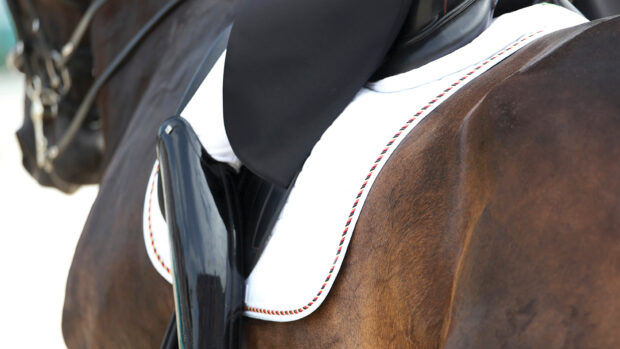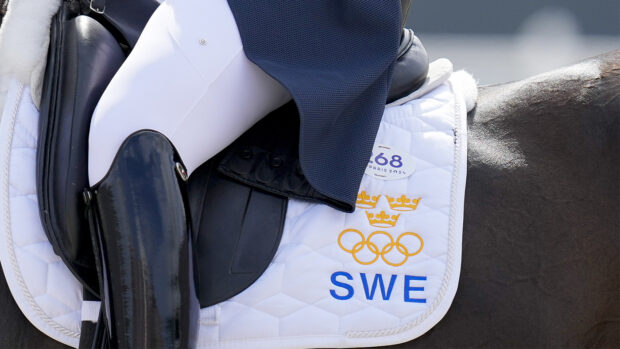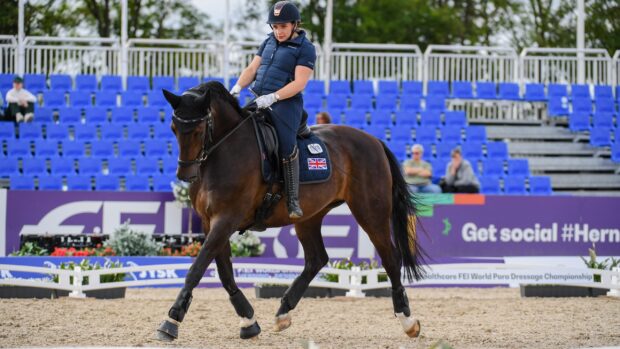British international grand prix dressage rider and trainer Anna Ross on the importance of listening to and engaging with those who criticise our sport
I don’t believe that animal lovers concerned about our sport should or will just leave us alone. So when I was fortunate enough to compete Habouche at the Compiègne CDI in France and learnt that a critic of modern dressage, who is active on social media, was in attendance, I decided to track her down.
Closed minds will close doors – if we don’t listen, people will only shout louder. So I approached tentatively, and opened the conversation.
“Hello, are you riding or er… supporting?” I asked.
“You won’t like me,” she replied, explaining that she was a vet, there to film the riders so she could raise concerns about horse welfare if she felt it justified. Interestingly, she viewed herself as a custodian of the sport, rather than a threat to it and we had a spirited but good-humoured debate.
We had much in common. We love horses and are concerned for their welfare and happiness, believe it’s OK to enjoy them for sport as long as welfare is not compromised, understand the FEI rules and directives, and agree social licence of the sport is crucial but can be protected with good practices that stand up to scrutiny.
I explained that creating witch-hunts on social media via screenshots and photos was misleading and unacceptable, and she said she now uses videos to make her points.
She took a blanket approach to neck length, believing horses at all times should be ridden in front of the vertical and referred to scientific papers demonstrating the negative effects of various training systems, including “low, deep and round” (LDR) and stretching. She agreed I could discuss the validity of these with my vet advisors.
I said I feel conformation impacts this “one-neck-fits-all” approach; horses with short necks or stallions with cresty necks might struggle to be poll high, stiffening their backs in the effort. Some young horses naturally curl behind the vertical, before they ever have a bit in their mouths. She felt horses on a completely loose rein that are behind the vertical by choice were in a state of learnt helplessness.
When I asked to see positive examples of grand prix riding, she showed me a video of a baroque horse at a lower level, making it hard for me to visualise the desired “end game”. There were a couple of Iberian horses in the grand prix training towards her vision, and she was glad to hear the judges awarded them good marks.
She felt the judges weren’t harsh enough when necks shortened and was pleased when I showed her my test sheet and video, when I’d momentarily “had my hands full” on an excitable Habouche and lost marks. I pointed out that with my score a fraction under 70%, the judges were saying there was much to improve.
To me, it would be more relevant and convincing to see the outcome of the training principles she suggested applied to grand prix warmbloods, via video or live. I have been invited to an annual conference of equestrian stakeholders she is involved with and hope I can attend to better understand the concerns.
“A boost in all directions”
Internet trolling is a clumsy weapon, although for smart people it can have a silver lining.
My long-term pupil Bronte Watson had an unpleasant experience when trolls commented negatively on her figure. She is well blessed in the bust department and took it with good humour, knowing she’d have the last laugh, because increased engagement on posts sparks the algorithm meaning future posts are more widely seen. So that person (or business) benefits.
Bronte received much advice and is now trialling bras and reporting back to her increased audience. You could say it’s a boost in all directions.
● Do you agree with Anna that we should be engaging with those who are critical of our sport? Let us know at hhletters@futurenet.com, including your name, nearest town and country, for the chance to have your views published in a future issue of Horse & Hound magazine.
- This exclusive column will also be available to read in Horse & Hound magazine, on sale Thursday 25 May, 2023
You may also be interested in…

Dressage rider in remission from cancer scores personal best during ‘biblical storm’

Carl Hester on what can cause poor mental health in dressage riders – and how to tell if you’re affected

Charlotte Dujardin posts new personal best at comeback show – riding to Valegro’s music

Subscribe to Horse & Hound magazine today – and enjoy unlimited website access all year round
Horse & Hound magazine, out every Thursday, is packed with all the latest news and reports, as well as interviews, specials, nostalgia, vet and training advice. Find how you can enjoy the magazine delivered to your door every week, plus options to upgrade your subscription to access our online service that brings you breaking news and reports as well as other benefits.




